Before talking about the State of Palestine, we should mention a couple of things about the Palestinian Territories – the situation surrounding these areas is quite unstable, so to say and, thus, we need to explain as to why this country has a high-risk level.
First of all, the Palestinian Territories refer to the Gaza Strip and to the West Bank – both of these are considered parts of Palestine but only around 136 UN nations recognize them as a sovereign state.
Moreover, the West Bank is under Israeli occupation but administered by the Palestinian Authority, and Gaza is under the control of Hamas, under an Israeli-Egyptian blockade. The Palestinian Authority and the Hamas both claim to be the actual legitimate government of Palestine – the reason for which they both are at odds.
Therefore, we can assume that the situation in these regions is not as good as the experience a traveler can get from visiting two of its most famous cities – Jerusalem and Bethlehem. However, you’ll find out more in the rest of our Palestine safety guide.
Let’s first talk a bit about Palestine’s two regions and what they shelter. The West Bank, composed by Judea and Samaria, is bordering Jordan to the east, with an impressive coastline on the Dead Sea, and Jerusalem and Israel to the west. It is controlled by the Palestinian National Authority and Israel, depending on the region.
On the other hand, the Gaza Strip is bordering Egypt to the southwest and the southwestern coast of Israel. Unlike some regions in the West Bank, Gaza Strip is entirely controlled by Hamas, the group that opposes the Palestinian National Authority.
In terms of points of interest, any tourist should make their way to Bethlehem and Jerusalem, of course, then to Hebron – which shelters an old city with glass and pottery factories -, Jericho, which is called the oldest city in the world and stands at 400m below the sea level, and maybe to Ramallah, the de facto administrative capital of Palestine.
Of course, there are many more other locations that might spark your interest – but there is one question that everybody should ask themselves before planning a trip into the either region of Palestine; namely, if is Palestine safe to visit?
Due to the current situations of the country, it is safe to assume that danger lies beyond every single corner – therefore, in the following paragraphs of our Palestine safety guide, we’ll tell you everything that you need to know about keeping yourself safe while visiting this beautiful country.
Highest Risks You Expose Yourself to When Visiting Palestine
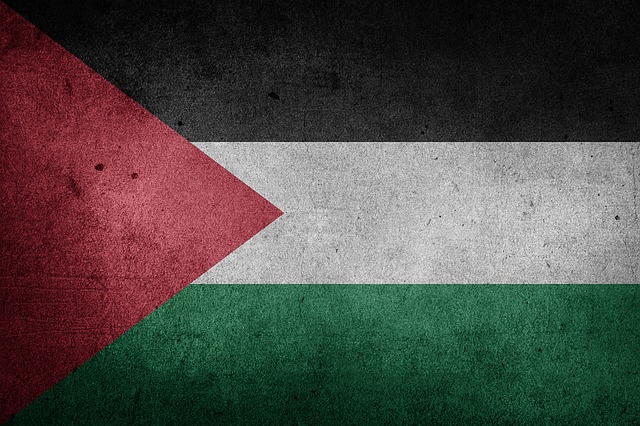
Overall Risks in Palestine: HIGH
As you can see here, the only places that you should definitely avoid are the east of Route 98 that runs across the Syrian border, Gaza, Jhajjar, and the Sheba’a Farms, and at least within 500m of the border with the country of Lebanon.
Gaza is especially dangerous due to the fact that, on the 12th of November this year, more than 370 projectiles have been fired from here into the southern part of Israel. Naturally, Israel gave a response and fired projectiles into Gaza as well.
Thus, if you do plan to visit the Gaza region, it is recommended that you familiarize yourself with the sound of the warning siren, all of the safety actions and procedures and that you keep a close eye on the media regarding this area and any updates to the travel advice guides.
On the other hand, the northern part of the country sees actions of the Israeli Defense Forces – they undergo operations against the Hizbollah group, which is believed to have crossed the Blue Line, from Lebanon into Israel, via underground tunnels.
All the areas that are close to these military operations are closed to the public but, if you find yourself anywhere near these areas, it is most likely that you will be met by Israeli troops, case in which it is recommended that you comply with any instructions that they might give you.
Pickpocketing and Theft Risks in Palestine: LOW to MEDIUM
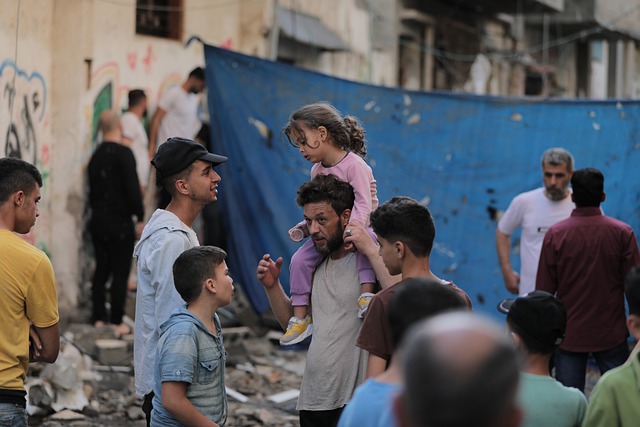
In terms of crime, the situation is, overall, good in Palestine and in Israel. Here, crime – including petty crime – is not a problem and any related incidents are not likely to occur. However, it is recommended that you take some safety measures against some of the most common risks – namely, theft of credit cards, passports, and valuables.
- How to avoid pickpocketing and theft in Palestine?
One of our Palestine safety travel tips is that you should keep all of your personal and important belongings in a safe place – most of the aforementioned incidents of thievery usually occur on public beaches.
Therefore, make sure that, if you do bring your bag with you and it contains valuable items, it is not left unattended – just as in any other country, if someone sees an opportunity, they will probably take it.
Moreover, due to the actions of an organized crime agency that is believed to have murdered Mahmud al-Mabhuh in 2010, via the use of passports with biometric security, it is strongly advised that you hand over your passport to security or Israeli officials only when it is absolutely necessary.
Scam Risk in Palestine: LOW
When it comes to scams, there are no significant reports – as mentioned, crime and organized crime in Israel and in Palestine focus on more important matters, so to say, and, therefore, the only people you should be careful about are the locals.
This is why,, as always, recommend that you get informed on the common fraud schemes that may be applied throughout the world so that you get a certain level of understanding of how they work and the know-how to avoid them.
- How to avoid getting scammed in Palestine?
As we know, most scammers target ATMs and, obviously, people that seem to be tourists. In this respect, you should either be very careful when withdrawing money from an ATM or, better, do so from within a bank.
Then, make sure that you avoid talking with any strangers, especially beggars or people that try too hard to get your attention - while you are paying attention to someone, his/ her accomplice may be casually stealing any of the valuables you have in your pockets or backpack.
Kidnapping Risk in Palestine: MEDIUM
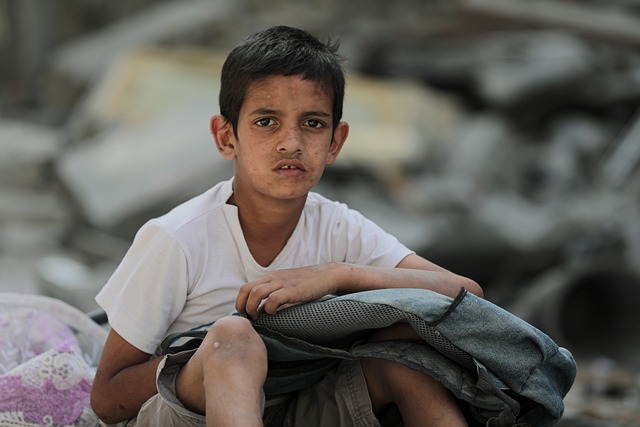
This certain risk applies especially if you are visiting Gaza and the regions that are along the border of Egypt. Due to the high threat of terrorism, that’s surrounding these areas and the aforementioned danger zones, it is recommended that you avoid them entirely.
- How to avoid getting kidnapped in Palestine?
Well, first of all, you should make sure that you are safe, sound, and away from any of the areas that are susceptible to terrorist attacks – most governments out there have a strict policy when it comes to terrorists, meaning that they are not to bargain with or give ransoms to them, as this increases the risk of them taking more hostages.
Moreover, you should always keep an eye on your surroundings and avoid large crowds of people – if you notice anything suspicious, it is better to leave the area and head straight to the authorities and inform them.
Terrorism Risk in Palestine: HIGH

According to several sources, it is very likely that the terrorist groups around the country of Palestine might carry attacks in it and in Israel as well. The level of this threat has increased, especially after the rocket attacks sent from Gaza to Israel and after Israel has ordered airstrikes on Gaza.
The latest event of importance took place on the 18th of March 2018, when an individual stabbed an Israeli security guard – who eventually died – in the Old City of Jerusalem. The individual was later shot by the authorities and killed.
- How to avoid terrorism in Palestine?
Therefore, it is safe to assume that, even if you are in places such as Jerusalem or Bethlehem, you are still not safe enough and away from any potential terrorist attacks. Thus, you should always be careful when traveling around points of interest – official buildings, places of prayer, and such.
Moreover, it is recommended that you avoid any rallies or protests that might occur, as they are likely to be targeted by the indiscriminate terrorist attacks – and, if you notice anything suspicious, it is best that you flee the area and head to the authorities.
Risks for Women Traveling Alone in Palestine: LOW to MEDIUM
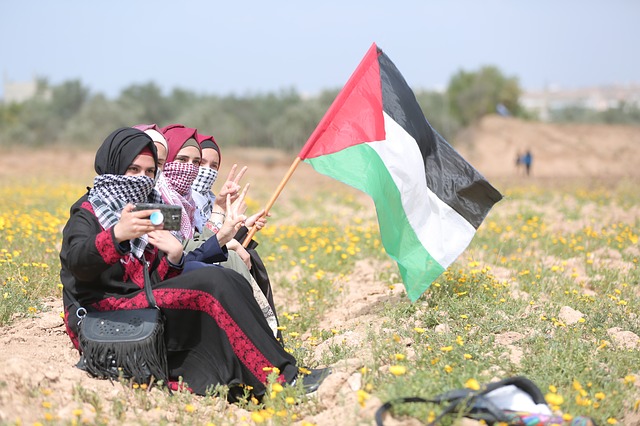
As a country that shelters two of the most important places of prayer in the world, the city of Jerusalem and Bethlehem, you might wonder if is Palestine safe for solo women travelers.
As previously mentioned, the level of crime/ petty crime is quite low and, therefore, a solo tourist should not worry about having his/ her items stolen or being attacked on the street – of course, this does not mean that you shouldn’t take any precautionary measures.
As for women, they can travel alone if they are extremely careful – due to the local laws, customs, and religion, it is unlikely that women might be harassed or abused. Still, it is better to not rule this out and keep an eye out on your surroundings.
When it comes to how safe is Palestine for tourists, the country is as safe as the tourist makes it for him or herself – thus, aided by the basic safety measures for any of the mentioned situations, you ensure your safety.
- How to avoid crime as a solo woman traveler in Palestine?
As mentioned before, you should check the local customs before choosing your outfit for the day - first of all, you don't want to disrespect any locals and, then, you really don't want to draw too much attention onto yourself.
You can never know what's going to happen next if you disrespect someone on the street - and take note that you can actually disrespect people just by the way you walk, dress, or talk.
In addition to all the safety tips we have mentioned so far, you should also do your best to avoid remote and dim-lit areas - also, don't go out in the evening/ during the night.
Rape Risk in Palestine: LOW to MEDIUM
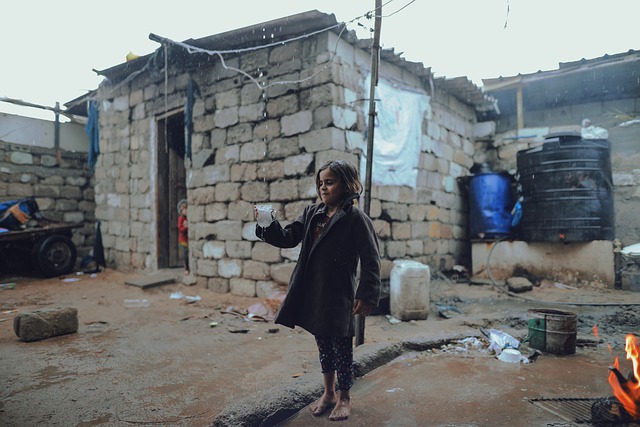
At the moment, there are no significant reports regarding this matter – however, the statistics show that 14.9% and 10.2% of the women and girls living in the Gaza Strip and in the West Bank, respectively, have been sexually abused.
Moreover, in 2013, a total of 28 women were killed in the name of honor, which is quite alarming, as this number has increased compared to the previous years – only 12 in 2012, and 8 in 2011.
- How to avoid getting raped in Palestine?
Therefore, our Palestine safety guide recommends that you take a look over the local laws and customs of Palestine so that you don’t offend or upset any locals – the situation may turn dangerous, not in terms of sexual abuse, but in terms of harassment.
As a foreigner and tourist, you should do your best to stick to your travel plans and avoid being the center of attention – namely, through any extravagant outfit or such, especially if you visit one of the two Holy cities.
Risks for People Traveling With Children in Palestine: LOW
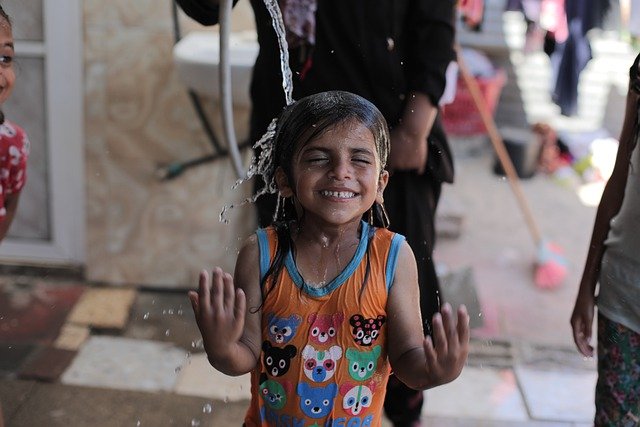
Is Palestine safe to visit for those that have children in their company? Well, as long as the children are kept under surveillance, so to say, one can take them in their travels.
It is important to remember that Palestine, given the fact that it shelters Jerusalem and Bethlehem, can see a really big number of tourists – of course, these usually don’t pose any danger; instead, the crowds are the things that are dangerous for the little ones, as they can get easily lost through them.
- How to avoid unwanted scenarios?
Thus, one of the most important Palestine safety travel tips that you have to take into account, especially if you travel with your children, is to never be out of the sight of the people that accompany you and to never let a member of your group go missing. It is best if you stick together and take your time waiting for any slow-walker, so to say.
Natural Disaster Risks in Palestine: MEDIUM
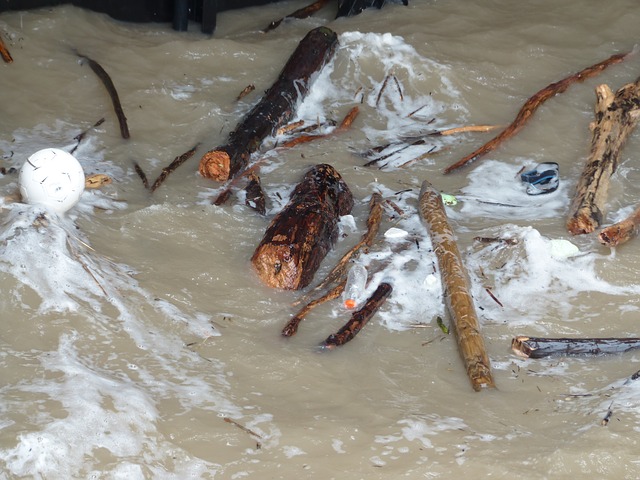
Two of the most commonly-occurring natural disasters are storms and floods – with a frequency of 80% and 20% respectively. Furthermore, these come with an 83.3% mortality rate, in the case of storms, and with a 16.7% mortality rate in the case of floods.
Other natural disasters that might strike Palestine are snowstorms, rain, and cold waves – therefore, depending on the season you are visiting this country in, it is recommended that you get informed about the basic preparations that you have to make before leaving your accommodation.
Moreover, our Palestine safety guide advises you to take some time every morning and listen to the weather report or check for it online – storms and flooding usually come without notice and it is better to have an idea about what’s happening around the country before leaving for the day.
Transportation Risks in Palestine: MEDIUM
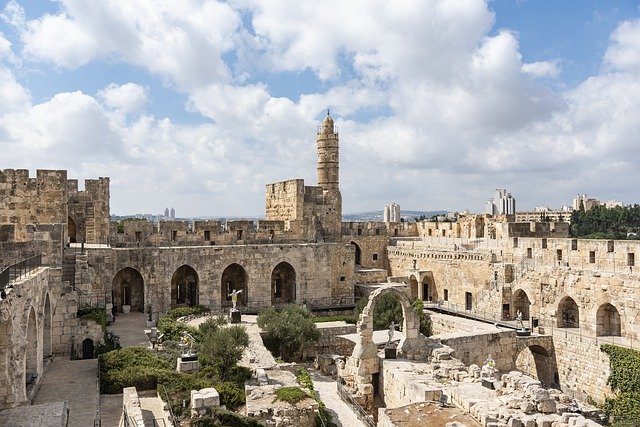
When it comes to transportation, driving status in Palestine is considered erratic and, thus, accidents are quite frequent. Moreover, if you plan on driving, make sure that you are within the speed limit, as there are radar speed traps on the roads - speeding fines are usually high.
Depending on the area you want to drive in, make sure that you have proper insurance before leaving for the day.
If you want to travel to the desert, make sure that you respect the following recommendation - come up with a stable itinerary and let someone trustworthy know where you are going to be and for how long. Obviously, take as much water as you think you'd need, as well as a mobile phone, in case of emergencies.
Night-Clubs, Pubs, and Bar Risks in Palestine: LOW
As most people visit Palestine with other plans in mind - namely, visiting places of prayer or other attractions rather than spending the night in a bar or pub -, it is only natural that there have been no reports of incidents taking place in night-clubs, pubs, or bars.
Moreover, as a highly religious country, it is also quite unlikely that any criminals would spend their time inside such facilities - of course, it is still recommended that you keep an eye out for anything suspicious.
If you do end up drinking during your trip, it is advised that you stick to your own drink and don't leave them unattended as well, so to say. The use of drink-spiking drugs is not excluded, even though there are no official reports of such cases.
You should not spend too much time inside a nightclub, pub, or bar - leave soon after midnight, in order to avoid any encounter with thieves, criminals, or such.
Health Risks in Palestine

Make sure that, before starting your trip, you are equipped with adequate travel health insurance and enough funds to pay the treatment bills in case of an emergency - healthcare in this country is not free and can be quite expensive, depending on injury/ illness.
Moreover, if you are not able to pay your bills, keep in mind that hospitals may be able to delay your departure until you have paid off everything you owe them.
In case of emergency, you can request medical assistance by dialing 101.
List of Vaccines You Need in Palestine
Naturally, when you are visiting a foreign country, it is recommended that you visit your doctor at least 4 to 6 weeks before leaving so that you get the recommended vaccines, immunizations, and tips on how to stay healthy during your visit.
However, we have prepared a list of vaccines you need when visiting Palestine so that you get an idea of what you have to be careful about after landing.
- Routine Vaccines – recommended to all travelers.
- Hepatitis A – applies to both Gaza and West Bank due to possible sources of contaminated food and water.
- Rabies – recommended for travelers that will be involved in outdoor activities, those that will work with animals, those that travel in remote areas, and for children – as they don’t refrain when seeing an animal and might not report bites/ scratches.
- Typhoid – even though the risk is low, it is recommended that you still take this vaccine.
Most Dangerous Areas in Palestine
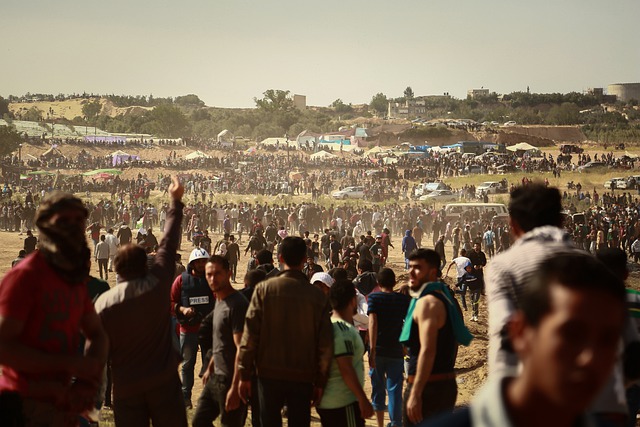
- Gaza
- Route 98 along the Syrian Border
- West Bank Area
Concluding Remarks: Is Palestine Safe to Visit?
Therefore, is Palestine safe to visit? As you have noticed, the only reason that the country is labeled with a high level of threat is that of terrorism and of the tensions between Israel and Gaza and between the Hamas and the Palestinian National Authority.
We can say that Palestine is safe to visit if you avoid all of the danger-zones we have mentioned so far – furthermore, your safety will be increased and ensured if you take some basic safety measures when traveling around the country.
Remember, even if the danger does not seem anywhere near, it is best if you come prepared for the worst.


